It is irrationally said that women were created to dedicate themselves to the service of men. In the 21st-century, when we are authenticating long-standing equality and equity between man and women, it is worth going through feminist writings, especially those that were composed as early as the 20th-century like Begum Rokeya’s ‘God Gives, Man Robs’. It is the most effective way to sharpen experiences and understand why a feminist approach is needed to break all shackles that have subjugated women for a long time.
We must take inspiration from Rokeya Sakhawat Hossain or Begum Rokeya who is renowned to have been the pioneer Bengali Muslim Feminist, who dared take a firm stance against the subjugation of women through her work.
We must take inspiration from Rokeya Sakhawat Hossain or Begum Rokeya who is renowned to have been the pioneer Bengali Muslim Feminist, who dared take a firm stance against the subjugation of women through her work. One of her writings is ‘God Gives, Man Robs’ where she explicitly talked about how man dominantes and does not let equality of all human beings prevail in spite of equality between men and women being propounded by God.
It is a blessing from the Almighty. Apparently, it is high time for us to go through such a writing where a man-made hierarchical system is rejected in favour of women who are the most affected and marginalised. It is important to Begum Rokeya thst the questions of equality and equity is repeatedly raised.
In fact, Begum Rokeya transcends a well-known saying, “Man proposes, God disposes”. She delineates through her writing that God considers both men and women equal. Like men, women are also independent human beings. This essay is an interlink between past and present because women are vulnerable to the fixed top-down patriarchal structure. As a result, women are deprived of their aspirations and dreams and even dehumanised to a great extent.
She even mentions Prophet Muhammad (PBUH) who was of the opinion that both men and women must gain education. He deemed it important as he knew its importance to liberate oneself from Jahiliyat (Ignorance). At present, Jahiliyat looms large to deprive, marginalise, dehumanise, and objectify women, and Begum Rokeya holds on to a feminist approach through touching upon Allah and Prophet Muhammad to challenge prevalent social evils to bring about changes in society.
How Begum Rokeya’s feminist approach challenges the subjugation of women
Following this article, the need of education is highly emphasised in Islam. People should get education to uplift themselves in society where they are pulled down to remain on the margins and face discrimination. It is sad that Indian Muslims could not understand its significance despite it being acknowledged by Prophet Muhammad who wants everyone to explore and get to know what is not known.
The first verse was revealed to Prophet Muhammad based on learning. It goes :
Iqra Bismi Rab Bikal Lazee Khalaq
Khalaqal Insaana Min ‘Alaq
Iqra Wa Rab Bukal Akram
Al Lazee ‘Allama Bil Qalam
Al Lamal Insaana Ma Lam Y’Alam
(Read, O Prophet, in the Name of your Lord who created
Human beings from a clinging clot
Read! Your Lord is the Most Generous
Who taught by the Pen
Taught humanity what they not knew)
Apparently, human beings were created to exceed all bounds through education.
The verse is in classical Arabic where the emphasis on Education can be seen. The two words: “Insaana” and “Qalam” refer to “Humans” and “Pen”. Apparently, human beings were created to exceed all bounds through education.
The article was written in the opening decades of the 20th century in British India. The British introduced English education that was opposed by Muslims because they thought it would go against Islam, but that was not the truth.
‘God Gives, Man Robs’ can be taken as a medium to challenge patriarchal norms
The analysis of Rokeya’s work can challenge patriarchal norms. It is patriarchal norms that do not only affect women’s social position but also eco-political status. It should be understood that entrenched patriarchy confines the ownership of properties and social-political privilege to men.
Moreover, this work draws an interlink between the past and present because it is relevant in present times all in all. At present, multiple forms of discrimination are meted out to women and people at the intersection of systems of marginalisation including gender, class, caste, race, region and religion. To counter, education is the most effective way to repudiate the subjugation of women so that they can advocate their human rights.
Amidst feminist writings in the contemporary world, ‘God Gives, Man Robs’ emerges as one of those historical feminist works whose authenticity needs to be understood. It is gender disparity that breeds unequal distribution of resources that does not let women to get socially, economically and politically empowered. Today, those who get quality education and have social and economic power decide how others get education. Women are still deprived of basic to high-level education because of social norms and practices.
Around the time when Rokeya was dedicated to working towards the liberation of women, education was meant for upper-caste men.
Around the time when Rokeya was dedicated to working towards the liberation of women, education was meant for upper-caste men. Since patriarchy is an ideology that can even influence women, women were also against women’s education. It was requisite to overcome social obstacles and distorted religious interpretation to smash restrictions imposed upon women.
Forceful imposition of marriage on women is highly condemned by Begum Rokeya
There is a report by Kailash Satyarthi Children’s Foundation that says, ‘76 women are forced to fall victim to forced marriages every day.‘ It further says, ‘every 2nd woman on whom forced marriage is imposed is a minor girl.’
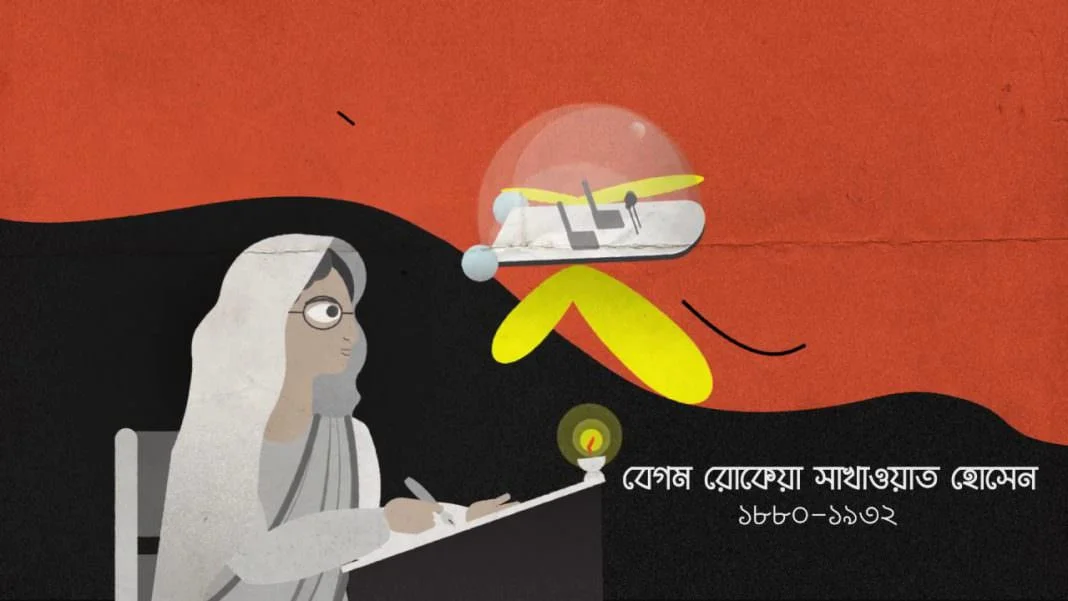
Through her article, she delineated women’s consent in marriages. She talks about freedom given to women by Islam where it is not even permitted to make women fall victim to forced marriages. Consent is accorded priority. Despite advances and progress, women’s consent is highly overlooked. The advent of Islam is historically traced back to the 7th century AD. It was the time period which is called ‘Zamaana-e-Jaahiliyyat’ (Age of ignorance), but Islamic preachings emerged to overcome oppression, suppression, exploitation that formed major characteristics of the age.
It does not mean that zamaana-e-jaahiliyat no longer looms large in the 21st century. It is where women are still deprived of education. Although women’s education is preached in policies but it is still a dream for many women. There is a long way to go to get gender equality and equity. Suppression of women’s consent and sidelining their opinions in decision-making still prevail.
Rokeya quotes the Quran that encourages human beings to pursue knowledge, but says it is societal norms that define gender roles for human beings where a man is expected to be qualified and earn the highest possible salary and a woman as a daughter, a mother and a wife is expected to be in service to men. In the midst, a woman as a separate entity is highly overlooked.
Begum Rokeya as a feminist contributed a lot to the upliftment of women in society. Actually, she showed the mirror to society where social norms are upheld and justified in the name of religion.
About the author(s)
As a student of history at the University of Delhi, Nashra Rehman is always elated to share
her understanding of Gender History and an interlink between past and present. She is highly
passionate to inculcate in awakening minds pertaining to “How and Why women are
marginalised” through her publications.
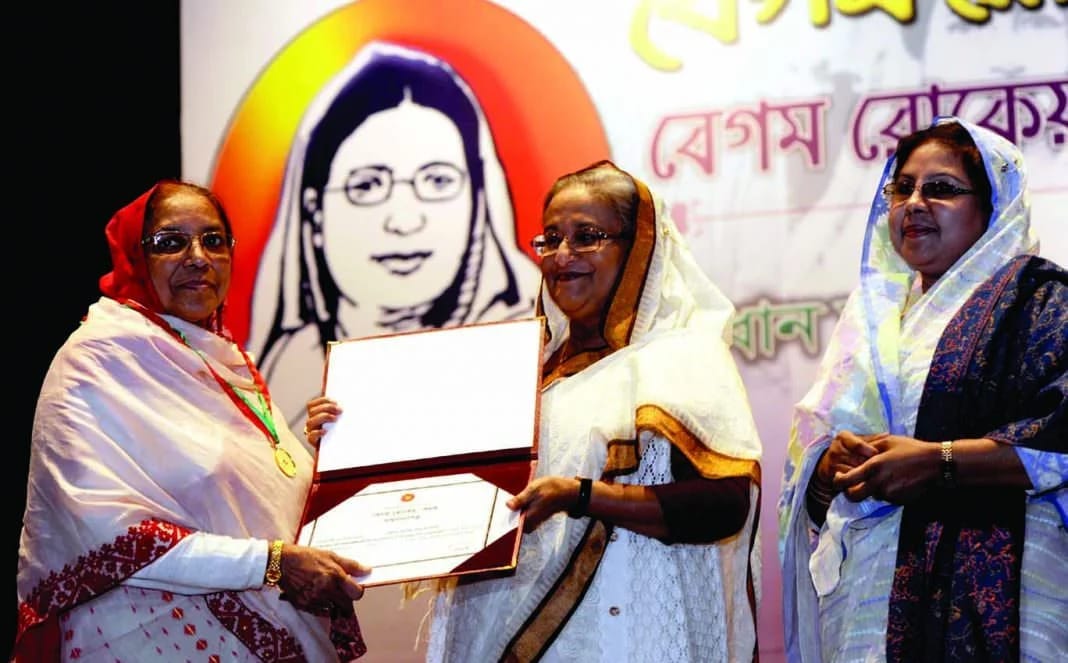
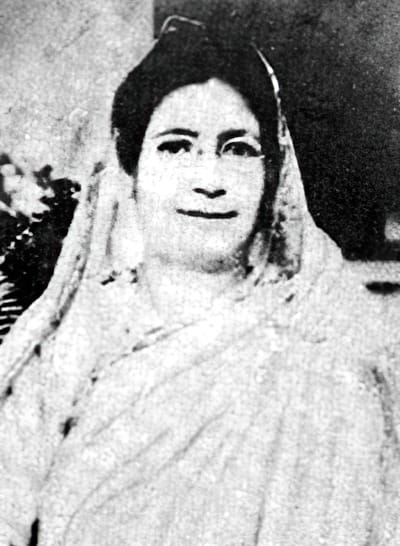
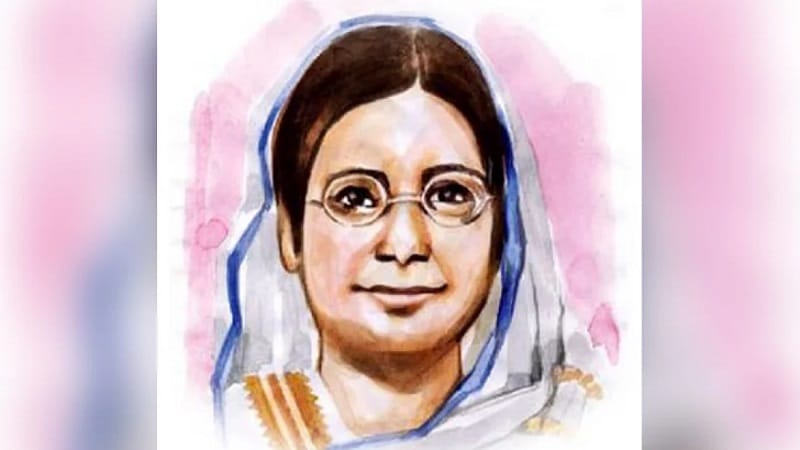



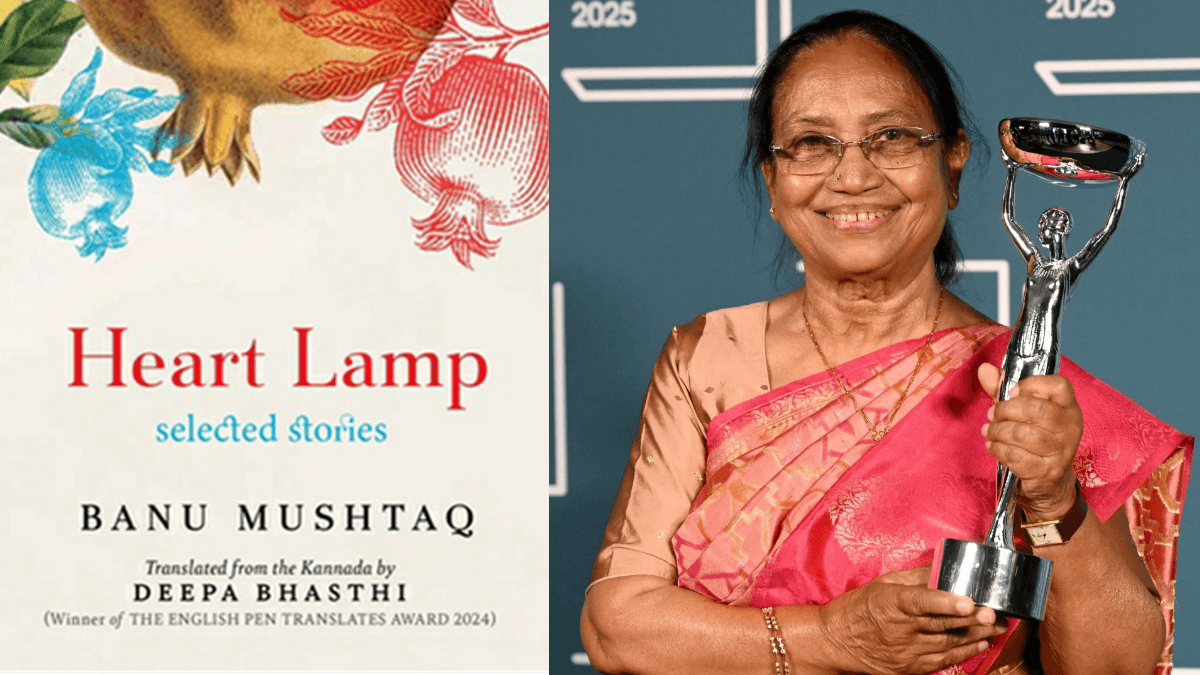


Man doesn’t rob. Lack of education is due to poverty, due to which men have to work the most dangerous jobs in the world, losing their limbs and their lives, countless men suffer from high blood pressure and heart attacks due to anxiety resulting from financial problems, the majority of suicides are men, and to provide majority of men work low paying jobs as labourers, rickshaw-pullers, fruit and vegetable sellers, street vendors, carpenters, plumbers, electricians, waiters, mechanics, welders, sewage workers, coal miners, factory workers, construction workers, tailors, barbers, milkmen, salesmen, clerks, truck drivers, bus drivers, auto drivers, taxi drivers, sweepers, cleaners, security guards, call center employees, cashiers, peons, repair workers, painters, janitors, petrol-pump attendants, garment pressers, dishwashers, etc.
Since you are quoting the Holy Quran in your article, can you tell me where it is written that a woman can take divorce settlement, alimony, child support, man’s property, etc, after a divorce? Dowry is wrong but robbing a man after a divorce is correct.
‘God Gives, Man Robs’
Majority of Indian men work menial jobs to provide for their families, regardless of the long hours, terrible pay, health issues, hazardous conditions, etc. showcasing resilience, dedication, and unwavering courage.